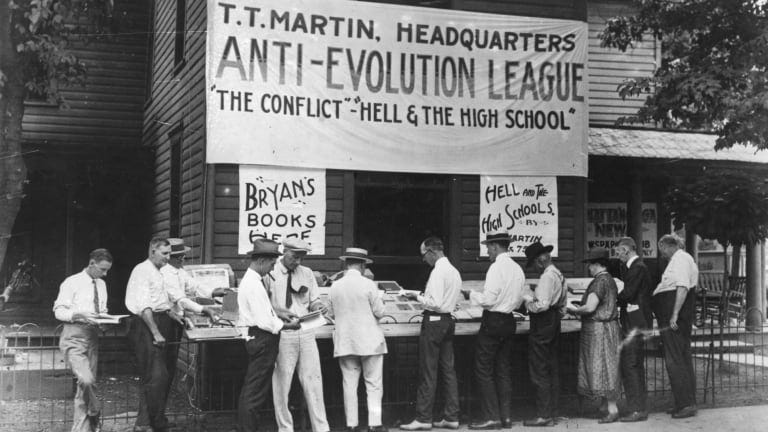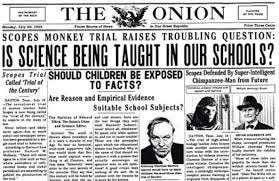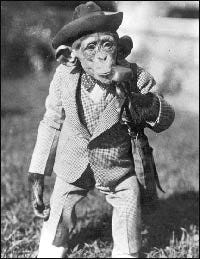The Scopes Trial: Evolution vs. Creationism in 1925
Written on
Chapter 1: The Trial Begins
On July 10, 1925, a young educator named John Scopes faced trial under a peculiar atmosphere that resembled a circus. Just four months prior, a new statute had been enacted, making it illegal to “teach any theory that contradicts the Divine Creation of man as portrayed in the Bible, and to assert instead that man descended from a lower order of animals.” This law was a direct response to Charles Darwin's groundbreaking theory of evolution, which proposed that humans and monkeys share a common ancestor—contrary to the widespread misconception that humans evolved directly from monkeys.
Darwin's theory sparked considerable controversy, drawing admiration from scientists eager to explore new realms of genetics and biology. Conversely, many Christians perceived it as a direct assault on their faith and beliefs. By the 1920s, many urban churches in the U.S. reconciled evolution with Scripture, while Southern congregations largely maintained a literal interpretation of the Bible, resisting any deviation from their established doctrines.

Chapter 2: The Challenge to the Law
In response to the growing tension around evolution, the Tennessee Legislature enacted the Butler Act in March 1925, prohibiting the teaching of Darwin's theory in public educational institutions. The American Civil Liberties Union (ACLU) was eager to contest this law and offered to cover legal expenses for any educator willing to challenge it in court.
John Scopes, a teacher in Dayton, volunteered for the cause. He read from a state-approved textbook, Hunter’s Civic Biology, covering human evolution and natural selection, which led to his arrest and subsequent trial.
In the video "Too Much Monkey Business," viewers can witness the sensational nature of the Scopes Trial and its impact on American society.
Chapter 3: A Showdown of Beliefs
Scopes' legal representation came from the prominent lawyer Clarence Darrow, who aligned with the ACLU to defend him against the charges. Opposing them was William Jennings Bryan, a staunch fundamentalist who sought a constitutional amendment to prohibit the teaching of evolution nationwide.
This trial marked a historic moment, being the first to be broadcast on radio. Media coverage was rampant, drawing large crowds to Dayton, where preachers held revival meetings and a so-called "missing link" was displayed—actually a short man with notable features. Vendors sold an array of items, from toy monkeys to refreshments, further enhancing the carnival-like atmosphere.

Chapter 4: The Trial Unfolds
The focus of the trial quickly shifted from Scopes to the two lawyers, who were the real attractions of this legal spectacle. Darrow's defense strategy faced a setback when Judge John Raulston disallowed expert testimony on evolution. Instead, Darrow decided to challenge Bryan's literal interpretation of the Bible, posing probing questions about various Biblical stories.
The following exchange illustrates the tension:
DARROW: What does the Bible itself say about the flood? How was the date calculated? BRYAN: I never made a calculation. DARROW: Based on what? BRYAN: I could not say.

Chapter 5: The Aftermath
Despite the awkwardness of Bryan's answers, the outcome was predetermined. Scopes was found guilty of violating the Butler Act, which the defense had anticipated, allowing them to pursue an appeal. Although Bryan technically won the case, he suffered significant humiliation throughout the process, leading to public ridicule of his beliefs. Tragically, he passed away just five days after the trial concluded.
In 1927, the Tennessee Supreme Court overturned the verdict based on a technicality, but the constitutional issues surrounding the separation of church and state lingered until 1968. The debate remains contentious, particularly in the Southern U.S.
The video "The Scopes 'Monkey' Trial (1925) | America Went 'Ape' Over This Case" delves deeper into the events and implications of this landmark trial.